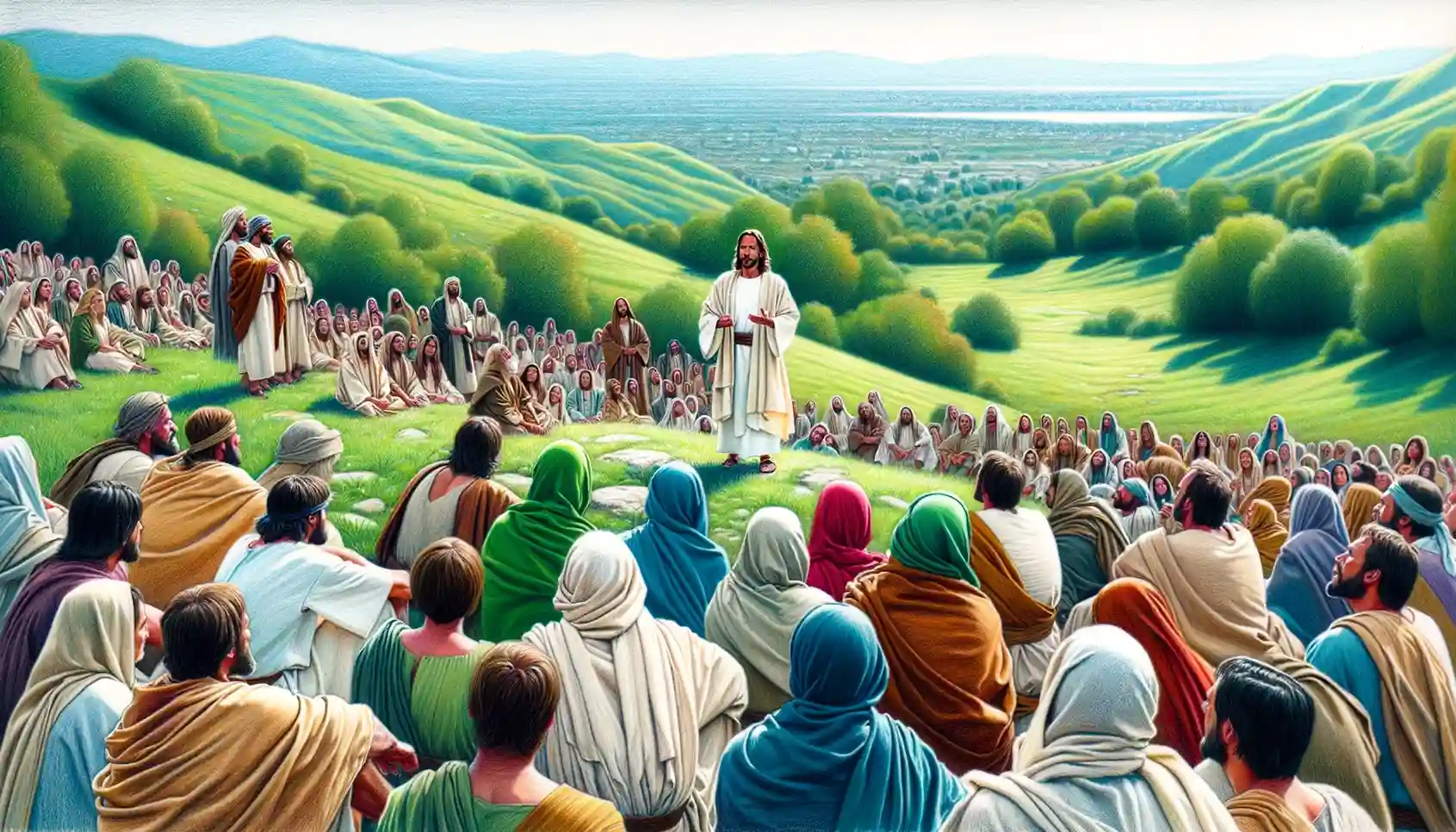Bethlehem, a small town in Judea, is renowned as the birthplace of Jesus Christ and King David, playing a crucial role in biblical history and Christian theology.
The Battle of Armageddon in Revelation 16:16 is a focal point in eschatological prophecy, symbolizing the climactic end of history where divine justice prevails over the forces of evil.
The narrative of the Birth of Jesus in Luke 2:1-20 offers a profound glimpse into the miraculous events surrounding the arrival of Christ, emphasizing themes of prophecy, divine humility, and celestial joy, set against a backdrop of Roman governance and fulfilled through a humble manger in Bethlehem.
Jesus Christ, central to Christianity, is believed to be the divine Son of God who came to earth to offer salvation through His teachings, death, and resurrection. His life and miracles, documented in the New Testament, continue to inspire and guide millions of believers worldwide.
Matthew, also known as Levi, was originally a tax collector before heeding Jesus’s call to “Follow me,” leading to his immediate departure from his previous life and his transformation into one of the Twelve Apostles, demonstrating the inclusive nature of Jesus’s ministry. Traditionally credited as the author of the first Gospel, Matthew’s writings are characterized by their structured thematic approach and emphasis on Jesus as the fulfillment of Old Testament prophecies, aimed at a Jewish Christian audience. His Gospel, which includes detailed teachings such as the Sermon on the Mount, highlights themes like righteousness, the kingdom of heaven, and the universality of Jesus’s message, resonating with both Jews and Gentiles. Venerated as a saint, Matthew’s legacy extends to being the patron of accountants, bankers, and tax collectors, with his life story embodying profound themes of conversion, discipleship, and the transformative power of divine grace.
The Sermon on the Mount, as presented in Matthew chapters 5 through 7, encapsulates the essence of Christian ethics and the teachings of Jesus Christ, offering a profound and comprehensive guide that challenges believers to achieve a higher standard of moral and spiritual integrity.
The Book of Hebrews presents Jesus Christ as the supreme revelation of God, emphasizing His superiority over all other forms of revelation and urging believers to place their trust fully in Him for salvation and perseverance in the faith.
The Gospel of John remains a foundational text for Christian theology, offering a rich and deeply spiritual perspective on Jesus Christ’s identity and His teachings.










